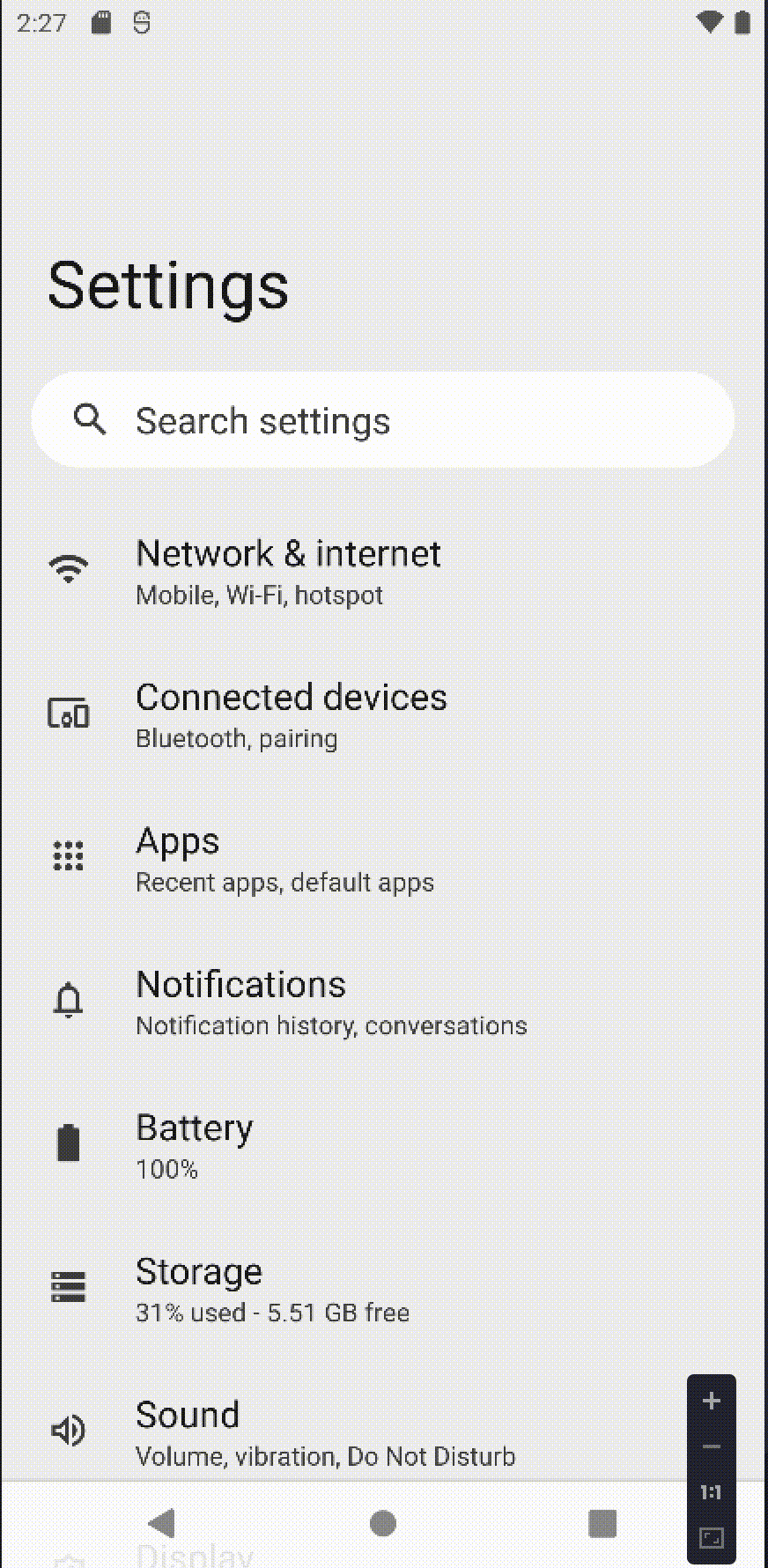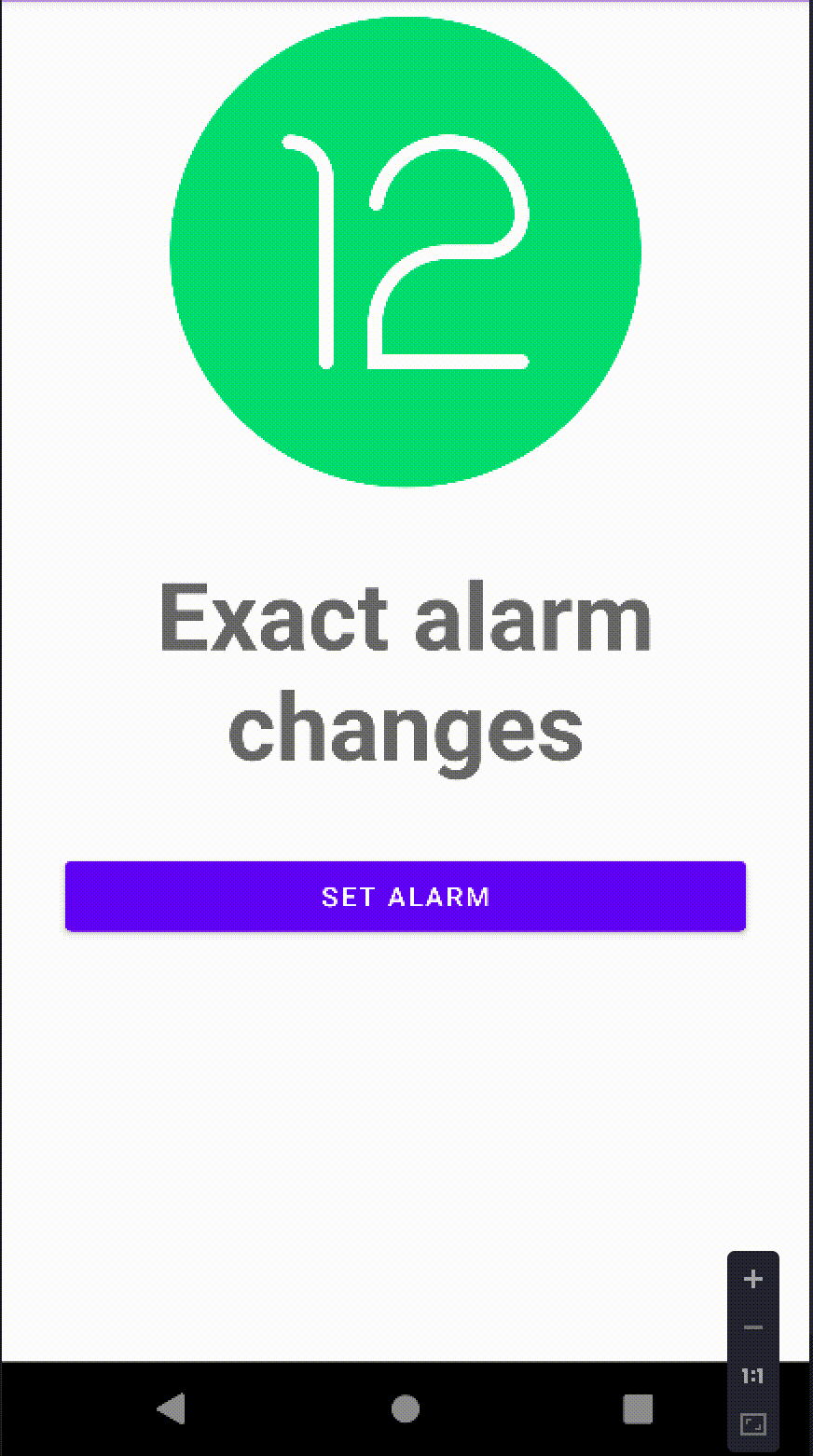In this article, we will go through the improvements that Android12 brings for Exact alarms ⏰.
- To make sure that the effective usage of system resources, Android 12 requires the
“Alarms & reminders”special app access if apps that target Android 12 want to set exact alarms. - SCHEDULE_EXACT_ALARM permission needs to be added in the manifest to get this special app access.
- Exact alarms should only be used for user-facing features. Acceptable use cases
Users or the system can revoke the “Alarms & reminders” special app access. All future exact alarms are canceled when the “Alarms & reminders” special app access is revoked for your app.
- The system sends the
ACTION_SCHEDULE_EXACT_ALARM_PERMISSION_STATE_CHANGED broadcast to your app when the “Alarms & reminders” special app access is granted to your app. - It will be sent to both runtime receivers and manifest receivers.
- It will not be sent when the user revokes the permission.
Check if the app has permission to set exact alarms?
- With the help of the canScheduleExactAlarms() method from
AlarmManager, we can check that if we have access or not to set exact alarms ⏰
| val alarmManager: AlarmManager = getSystemService(Context.ALARM_SERVICE) as AlarmManager | |
| // check if our app can set exact alarms | |
| if(alarmManager.canScheduleExactAlarms()){ | |
| Log.d("MainActivity", "onCreate: SCHEDULE ALARM") | |
| } |
canScheduleExactAlarms()
SecurityException occurs if an app tries to use APIs that set exact alarms but isn’t granted special app access.
Ask users to grant the app access
If canScheduleExactAlarms() returns false, You can navigate the users to the Alarms & reminders screen in system settings where they can provide this special access to our app.
To do so, complete the following steps:
- Explain to the user why your app needs to schedule exact alarms ⏰.
- Invoke an intent with
ACTION_REQUEST_SCHEDULE_EXACT_ALARMintent action
| val alarmManager: AlarmManager = getSystemService(Context.ALARM_SERVICE) as AlarmManager | |
| when { | |
| alarmManager.canScheduleExactAlarms() -> { | |
| Log.d("MainActivity", "onCreate: SCHEDULE ALARM") | |
| } | |
| else -> { | |
| // go to exact alarm settings | |
| Intent().apply { | |
| action = ACTION_REQUEST_SCHEDULE_EXACT_ALARM | |
| }.also { | |
| startActivity(it) | |
| } | |
| } | |
| } |
Open Alarms and Reminders Settings
BroadcasterReceiver implementation
To listen to the state of special app access permission, we need to implement the
BroadcasterReceiver
- AlarmReciever
| class AlarmReceiver : BroadcastReceiver() { | |
| private val TAG = "AlarmReceiver" | |
| override fun onReceive(context: Context, intent: Intent) { | |
| when (intent.action) { | |
| ACTION_SCHEDULE_EXACT_ALARM_PERMISSION_STATE_CHANGED -> { | |
| Toast.makeText(context, "RECEIVED ALARM PERMISSION", Toast.LENGTH_LONG).show() | |
| } | |
| "from alarm" -> { | |
| Toast.makeText(context, "ALARM FIRED", Toast.LENGTH_LONG).show() | |
| } | |
| } | |
| } | |
| } |
AlarmReceiver-Android12
- Register receiver via manifest
| <receiver | |
| android:name=".alarmreceiver.AlarmReceiver" | |
| android:enabled="true" | |
| android:exported="true"> | |
| <intent-filter> | |
| <action android:name="android.app.action.SCHEDULE_EXACT_ALARM_PERMISSION_STATE_CHANGED" /> | |
| <action android:name="from alarm" /> | |
| </intent-filter> | |
| </receiver> |
Add receiver to manifest
- Register runtime receiver
| override fun onCreate() { | |
| super.onCreate() | |
| if (Build.VERSION.SDK_INT >= Build.VERSION_CODES.S) { | |
| alarmReceiver = AlarmReceiver() | |
| registerReceiver( | |
| alarmReceiver, | |
| IntentFilter(android.app.AlarmManager.ACTION_SCHEDULE_EXACT_ALARM_PERMISSION_STATE_CHANGED), | |
| ) | |
| } | |
| } | |
| override fun onDestroy() { | |
| alarmReceiver?.let { | |
| Log.d(TAG, "onStop: Un-register receiver") | |
| unregisterReceiver(it) | |
| } | |
| super.onDestroy() | |
| } |
Register runtime receiver
Job Offers
Check full sample code
😊😊 👏👏👏👏 HAPPY CODING 👏👏👏👏 😊😊
Demo 🥳🥳🥳🥳
- Special app access settings

Special app access settings
- Navigate to settings, allow the permission, and set the alarm

Application demo








